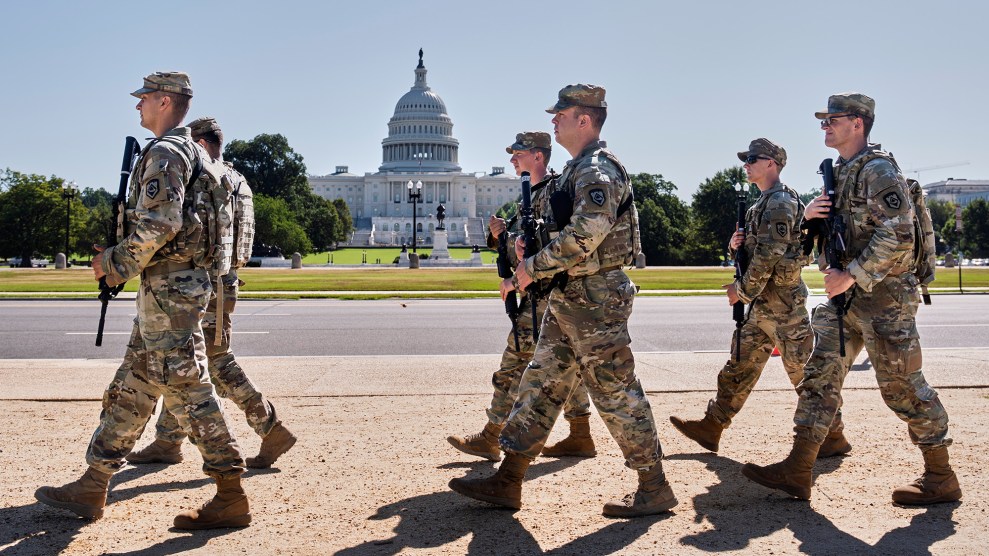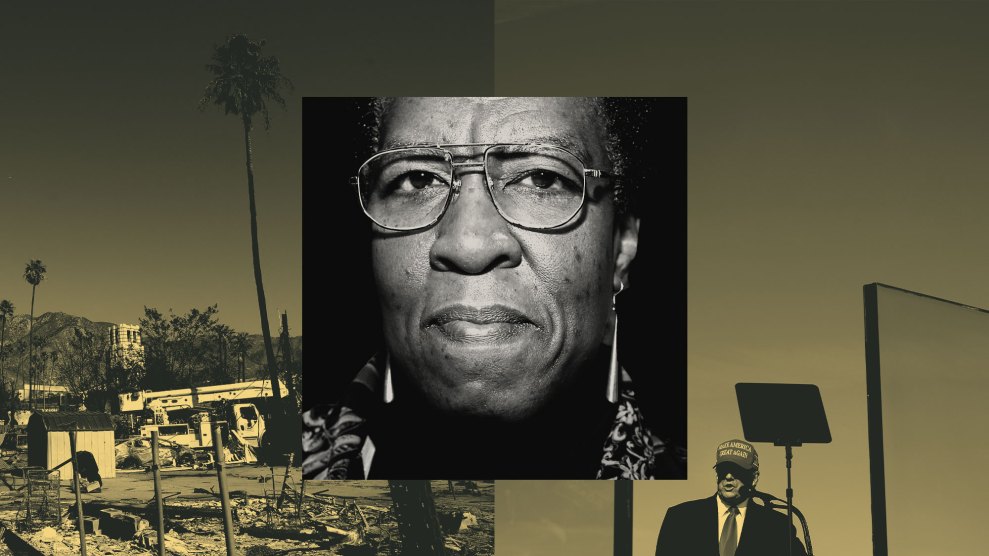On June 11, 2003, Robert Grenier, a 27-year CIA veteran who served as the agency’s point man on Iraq, was pulled out of a late afternoon meeting with CIA director George Tenet and informed that the vice president’s chief of staff, Scooter Libby, was awaiting his call. To be interrupted in this way was highly unusual and Grenier hurried to the phone. “I don’t think I’d ever been called out of a meeting with the director either before or since,” Grenier recalled yesterday, testifying at Libby’s perjury and obstruction of justice trial.
According to Grenier, Libby had contacted him earlier that afternoon with an urgent request. A former ambassador named Joseph Wilson, Libby explained, “was going around town and speaking to people in the press” about a mission he’d been sent on by the agency to investigate claims that Iraq had sought to buy yellowcake uranium from Niger. Wilson, Libby said, was also claiming that his trip had been prompted by interest in the subject by the Office of the Vice President. Libby asked Grenier to check out Wilson’s story: Was it true that the CIA had dispatched him on this mission? Further, had this trip indeed been undertaken at the behest of Cheney’s (and Libby’s) office? “He sounded a little bit aggrieved,” Grenier recalled. “There was a slightly accusatory tone in his voice.” This tone suggested to Grenier that Libby “would need this information sooner than later, so he could potentially get out in front of this story.”
When Grenier returned Libby’s call later that afternoon, he reported what he’d learned. Wilson had, in fact, been sent to Niger by the agency. But, he told Libby, the impulse hadn’t come just from the Office of the Vice President — the Pentagon and the State Department had also expressed interest in looking into the Niger claim. Grenier also told Libby something else, something he would immediately regret. He revealed that Wilson’s wife worked in the same CIA unit — the one devoted to Iraqi WMDs — that had dispatched the former ambassador on the trip. After he got off the phone with Libby, Grenier recalled feeling a twinge of guilt, “as if I had said too much.” In particular, he was concerned that he may have “revealed the identity of an agency officer.” Prodded to explain, Grenier told the court that this “is information that we normally guard pretty closely. In the CIA our habit is that if we don’t need to say something, we generally don’t.” But, he says he told himself, “look — this is a senior government official, he probably has every security clearance known to man.”
Grenier’s recollections, and those of other government officials expected to be called as witnesses in this trial, would seem crucial to prosecutor Patrick Fitzgerald’s attempt to prove that Libby knowingly lied to FBI investigators and a grand jury investigating the leak of Valerie Plame’s job as a CIA covert operative. His testimony directly contradicts Libby’s own claim that Plame’s identity was news to him when NBC’s Tim Russert brought it up during a conversation on July 10. (Russert says Plame never came up during this conversation, nor was he even aware of her role at the CIA at the time.) It also suggests that Libby was highly focused on getting the back story on Wilson’s trip, making it unlikely that he would later forget how he first learned of Plame’s identity.
Unfortunately for Fitzgerald, Grenier’s testimony may end up helping the defense more than it does the prosecution. When Grenier was interviewed by the FBI in the fall of 2003, and when he testified before the grand jury in January 2004, he told a somewhat different story. At the time, he didn’t recall whether or not Plame had come up in his conversation with Libby. It was only later, Grenier said in court yesterday, that he developed “a growing conviction” that he’d mentioned “Wilson’s wife.” After reporting this recollection to the CIA’s office of general counsel, Grenier ended up appearing before the grand jury a second time to clarify his story.
Sure enough, one of Libby’s attorneys, William Jeffress, hammered Grenier on the inconsistencies in his story, forcing him to admit, at one point, that “my recollection of a lot of conversations from that time are pretty vague.” Grenier, all the same, stuck with his version, saying that he’d been “conservative” when he first talked to investigators, not wanting to cast “suspicion on Mr. Libby” unnecessarily.
Defense lawyer Ted Wells was able to exploit a similar contradiction in his cross-examination of Marc Grossman, a former senior State Department official who was the first witness to take the stand in the trial. Like Grenier, Grossman testified that he had conversations with Libby in late May and early June of 2003 relating to Wilson’s trip to Niger. During his testimony yesterday, Grossman said these were face-to-face meetings; Wells then pointed out that he’d previously told the FBI they were phone conversations.
“You accept the fact that you told the FBI something different on February 24, 2004, than you told this jury?” Wells asked.
“Yes, sir,” Grossman acknowledged.
This may seem a minor inconsistency, but it’s fuzzy recollections like this that Libby’s defense may rest on. One of the central arguments that Libby’s lawyers will make is that almost no one — including high-level government officials who have lots of national security concerns to attend to — can be expected to remember the details of their day-to-day interactions. If officials like Grossman and Grenier can have “recollection problems,” as Wells put it on Tuesday, why not Libby? And as they well know, the burden of proof is on the prosecution. All the defense needs to do is supply the doubt.

















